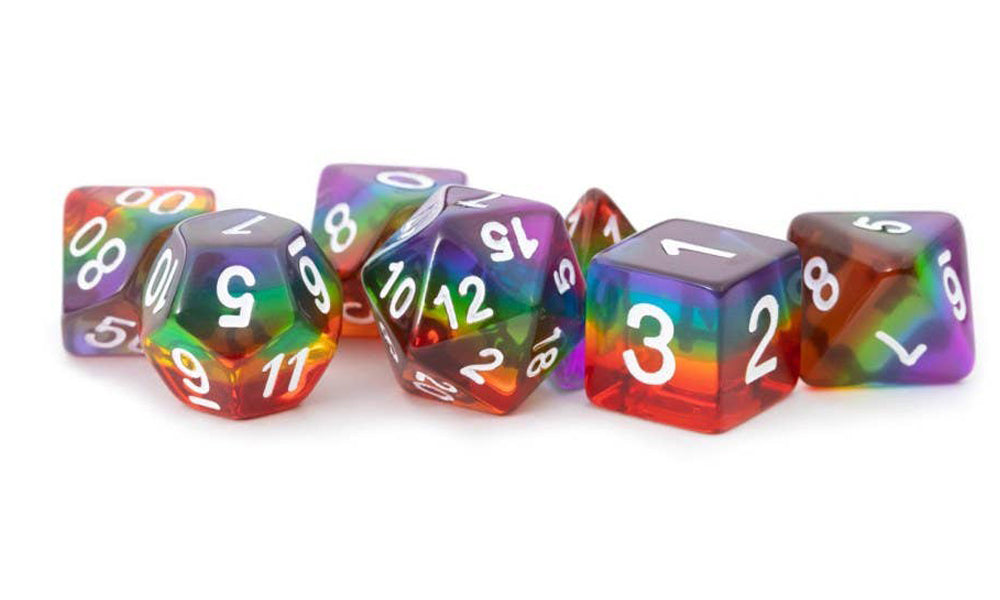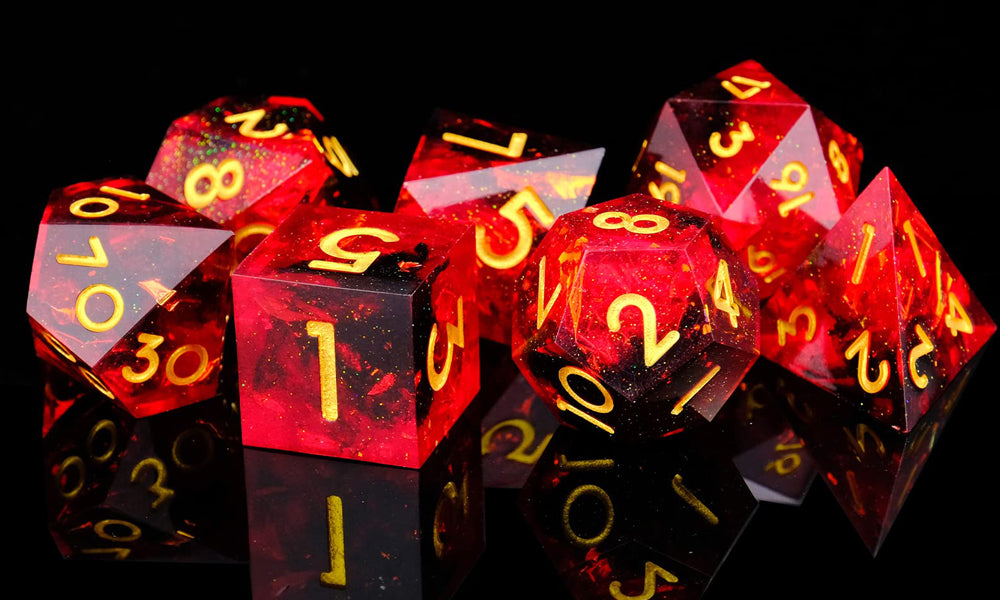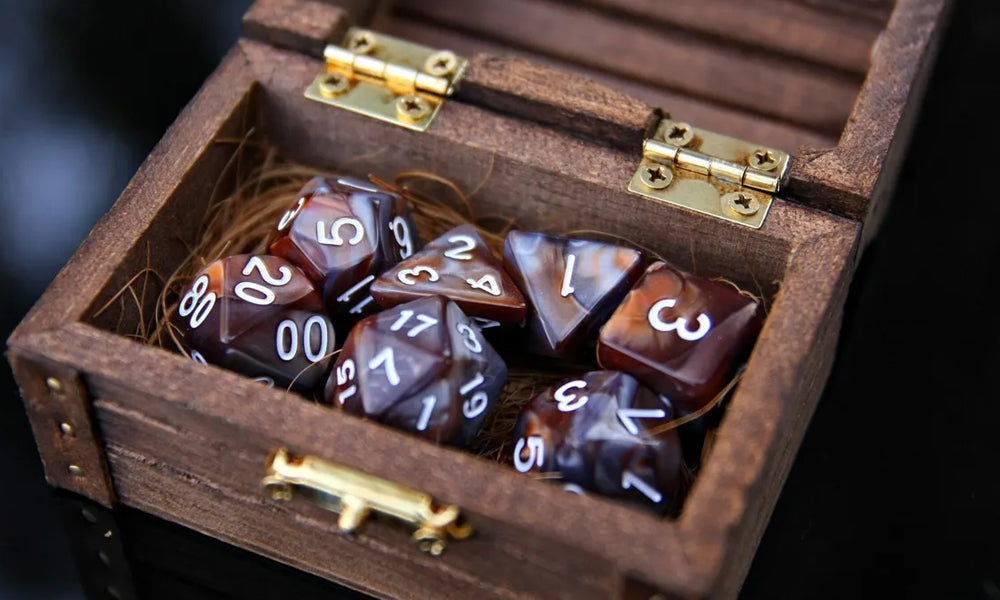Dungeons and Dragons (DND) is a captivating tabletop role-playing game that has gained immense popularity over the years. Central to the gaming experience are the iconic dice that players use to determine the outcomes of their in-game actions. However, over time, these cherished dice can accumulate dirt, oils, and grime, affecting both their aesthetic appeal and performance. In this comprehensive guide, we will delve into the world of DND dice cleaning, providing you with practical tips and techniques to ensure your dice remain in pristine condition.
Why You Should Clean Your DND Dice
There are many reasons why you should clean your DND dice regularly. Here are some of the most important ones:
- Hygiene: DND dice can get dirty, dusty, and sticky over time. They can also harbor germs, bacteria, and viruses that can cause infections and diseases. Especially in times of pandemic, you want to make sure your dice are clean and sanitized before and after each game session. This will protect you and your fellow players from getting sick and spreading illnesses.
- Performance: DND dice can also get damaged, scratched, chipped, or worn out over time. This can affect their balance, weight, and rolling quality. You want your dice to roll smoothly, fairly, and consistently. You don't want them to get stuck, bounce, or roll off the table. You also don't want them to favor certain numbers or sides over others. Cleaning your dice regularly can help prevent these problems and ensure optimal performance.
- Appearance: DND dice can also lose their color, shine, and luster over time. They can get dull, faded, or stained. You want your dice to look beautiful, vibrant, and attractive. You want them to match your character, your theme, and your mood. You want them to impress your friends and foes with their style and quality. Cleaning your dice regularly can help preserve their appearance and enhance their aesthetic appeal.
- Value: DND dice can also be valuable, rare, or collectible. They can have sentimental, historical, or monetary value. You want to preserve and protect your dice as much as possible. You don't want to lose them, break them, or ruin them. Cleaning your dice regularly can help maintain their value and extend their lifespan.
As you can see, cleaning your DND dice is not only a matter of preference, but also a matter of necessity.
How to Clean Your DND Dice
Now that you know why and how often you should clean your dnd dice, let's see how to do it. There are different methods and products you can use to clean your DND dice, depending on the type of material, dirt, and damage you are dealing with. Here are some of the most common and effective ones:
Soap and water:
This is the simplest, cheapest, and most universal method to clean your DND dice. All you need is some warm water, some mild soap or detergent, and a soft cloth or sponge. You can use this method for any kind of dice, except for wood or stone dice, which can absorb water and warp or crack. To use this method, follow these steps:
• Fill a bowl or a sink with warm water and add a few drops of soap or detergent. Stir well to create a sudsy solution.
• Put your dice in the solution and let them soak for a few minutes. This will help loosen and dissolve any dirt, dust, or grease on the surface of your dice.
• Take your dice out of the solution and gently scrub them with a soft cloth or sponge. Pay attention to the corners, edges, and crevices of your dice, where dirt and dust can accumulate. You can also use a soft toothbrush or a cotton swab to reach the hard-to-clean areas, such as the numbers or symbols on your dice.
• Rinse your dice with clean water and dry them with a soft towel or a paper towel. Make sure your dice are completely dry before storing or using them, to prevent mold, mildew, or rust.
Alcohol and cotton:
This is another simple and effective method to clean your DND dice. All you need is some rubbing alcohol, some cotton balls or pads, and some toothpicks or tweezers. You can use this method for any kind of dice, except for plastic or resin dice, which can react with alcohol and lose their color or shine. To use this method, follow these steps:
• Pour some rubbing alcohol into a small container, such as a cup or a jar. You don't need too much, just enough to wet your cotton balls or pads.
• Dip a cotton ball or pad into the alcohol and squeeze out the excess. You want your cotton to be moist, but not dripping.
• Wipe your dice with the cotton, starting from the center and moving outward. This will help remove any dirt, dust, or grease on the surface of your dice, as well as disinfect them from any germs, bacteria, or viruses. You can also use a cotton swab to reach the hard-to-clean areas, such as the numbers or symbols on your dice.
• If you notice any stubborn stains or marks on your dice, such as ink, paint, or glue, you can try to scrape them off with a toothpick or a tweezer. Be careful not to scratch or damage your dice, and use gentle and steady motions.
• Let your dice air dry or wipe them with a soft towel or a paper towel. Make sure your dice are completely dry before storing or using them, to prevent mold, mildew, or rust.
Vinegar and baking soda:
This is another simple and effective method to clean your DND dice. All you need is some white vinegar, some baking soda, and a soft cloth or sponge. You can use this method for any kind of dice, except for metal dice, which can react with vinegar and corrode or tarnish. To use this method, follow these steps:
• Fill a bowl or a sink with warm water and add a few tablespoons of white vinegar. Stir well to create a slightly acidic solution.
• Put your dice in the solution and let them soak for a few minutes. This will help loosen and dissolve any dirt, dust, or grease on the surface of your dice, as well as remove any odors or stains.
• Take your dice out of the solution and sprinkle some baking soda on them. This will create a fizzy reaction that will further clean and polish your dice. You can also rub the baking soda on your dice with a soft cloth or sponge, to create more friction and abrasion.
• Rinse your dice with clean water and dry them with a soft towel or a paper towel. Make sure your dice are completely dry before storing or using them, to prevent mold, mildew, or rust.
Polish and cloth:
This is another simple and effective method to clean your DND dice. All you need is some polish, such as metal polish, plastic polish, or furniture polish, and a soft cloth or microfiber cloth. You can use this method for any kind of dice, except for wood or stone dice, which can absorb polish and become sticky or oily. To use this method, follow these steps:
• Apply a small amount of polish on your cloth or microfiber cloth. You don't need too much, just enough to cover your dice.
• Rub your dice with the cloth, using circular motions and gentle pressure. This will help remove any dirt, dust, or grease on the surface of your dice, as well as restore their color, shine, and luster. You can also use a soft toothbrush or a cotton swab to reach the hard-to-clean areas, such as the numbers or symbols on your dice.
• Wipe off any excess polish with a clean cloth or paper towel. Make sure your dice are completely dry before storing or using them, to prevent mold, mildew, or rust.
How to Clean Different Types of DND Dice
As we mentioned before, different types of DND dice may require different methods and products to clean them. Here are some specific tips and recommendations for each type of dice:
Clean Metal dice:
Metal dice are usually made of zinc alloy, brass, copper, steel, or aluminum. They are durable, heavy, and smooth, but they can also get dented, bent, or rusted over time. To clean metal dice, you can use any of the methods we described above, except for vinegar and baking soda, which can corrode or tarnish them. You can also use a metal polish or a jewelry cleaner to make them shine and sparkle. Avoid using abrasive or acidic products, such as sandpaper, steel wool, or lemon juice, which can scratch or damage them. Also, avoid exposing them to water or moisture for too long, which can cause them to rust or oxidize.
Clean Plastic dice:
Plastic dice are usually made of acrylic, polystyrene, or polyhedral. They are lightweight, cheap, and colorful, but they can also get scratched, chipped, or worn out over time. To clean plastic dice, you can use any of the methods we described above, except for alcohol and cotton, which can react with them and lose their color or shine. You can also use a plastic polish or a car wax to make them smooth and glossy. Avoid using abrasive or hot products, such as sandpaper, steel wool, or boiling water, which can scratch or melt them. Also, avoid exposing them to sunlight or heat for too long, which can cause them to fade or warp.
Clean Resin dice:
Resin dice are usually made of epoxy, polyester, or polyurethane. They are similar to plastic dice, but they are more flexible, durable, and transparent. They can also have more intricate, detailed, and colorful features, such as glitter, swirls, or inclusions. To clean resin dice, you can use any of the methods we described above, except for alcohol and cotton, which can react with them and lose their color or shine. You can also use a resin polish or a glass cleaner to make them clear and bright. Avoid using abrasive or hot products, such as sandpaper, steel wool, or boiling water, which can scratch or melt them. Also, avoid exposing them to sunlight or heat for too long, which can cause them to fade or yellow.
Clean Wood dice:
Wood dice are usually made of natural or synthetic wood, such as bamboo, walnut, or rosewood. They are warm, organic, and unique, but they can also get warped, cracked, or splintered over time. To clean wood dice, you can use soap and water, but only sparingly and briefly. You can also use a wood polish or a furniture wax to make them smooth and shiny. Avoid using abrasive or wet products, such as sandpaper, steel wool, or vinegar, which can scratch or damage them. Also, avoid exposing them to water or moisture for too long, which can cause them to swell or rot.
Clean Stone dice:
Stone dice are usually made of natural or synthetic stone, such as marble, quartz, or jade. They are cool, elegant, and luxurious, but they can also get chipped, cracked, or broken over time. To clean stone dice, you can use soap and water, but only sparingly and briefly. You can also use a stone polish or a jewelry cleaner to make them smooth and shiny. Avoid using abrasive or acidic products, such as sandpaper, steel wool, or lemon juice, which can scratch or damage them. Also, avoid exposing them to water or moisture for too long, which can cause them to erode or dissolve.
How to Clean Your DND Dice Accessories
In addition to your DND dice, you may also have some accessories that you use to store, transport, or roll your dice, such as dice bags, dice boxes, dice vaults, dice trays, dice towers, or dice rollers. These accessories can also get dirty, dusty, or damaged over time, and they may also need some cleaning and maintenance. Here are some tips and recommendations for each type of accessory:
Clean Dice bags:
Dice bags are usually made of fabric, such as cotton, velvet, or leather. They are soft, flexible, and portable, but they can also get stained, torn, or worn out over time. To clean dice bags, you can use soap and water, but only if they are washable and colorfast. You can also use a fabric cleaner or a stain remover to make them clean and fresh. Avoid using abrasive or hot products, such as sandpaper, steel wool, or boiling water, which can scratch or shrink them. Also, avoid exposing them to sunlight or heat for too long, which can cause them to fade or warp.
Clean Dice boxes:
Dice boxes are usually made of wood, metal, or plastic. They are hard, sturdy, and protective, but they can also get dented, scratched, or broken over time. To clean dice boxes, you can use soap and water, but only sparingly and briefly. You can also use a polish or a wax to make them smooth and shiny. Avoid using abrasive or acidic products, such as sandpaper, steel wool, or vinegar, which can scratch or damage them. Also, avoid exposing them to water or moisture for too long, which can cause them to rust or rot.
Clean Dice vaults:
Dice vaults are similar to dice boxes, but they are more secure, elegant, and expensive. They are usually made of wood, metal, or resin, and they have a lid, a lock, and a foam insert to hold your dice. They are the ultimate way to store and protect your dice, but they can also get dented, scratched, or broken over time. To clean dice vaults, you can use the same methods and products as for dice boxes, but be extra careful and gentle with them. You can also use a vacuum cleaner or a compressed air can to remove any dust or dirt from the foam insert. Avoid using abrasive or acidic products, such as sandpaper, steel wool, or vinegar, which can scratch or damage them. Also, avoid exposing them to water or moisture for too long, which can cause them to rust or rot.
Clean Dice trays:
Dice trays are usually made of wood, metal, plastic, or leather. They are flat, round, or square, and they have a raised edge and a padded bottom to roll your dice. They are convenient, comfortable, and quiet, but they can also get stained, scratched, or worn out over time. To clean dice trays, you can use soap and water, but only sparingly and briefly. You can also use a polish or a wax to make them smooth and shiny. Avoid using abrasive or hot products, such as sandpaper, steel wool, or boiling water, which can scratch or melt them. Also, avoid exposing them to sunlight or heat for too long, which can cause them to fade or warp.
Clean Dice towers:
Dice towers are usually made of wood, metal, plastic, or cardboard. They are tall, narrow, and hollow, and they have a ramp, a chute, and a tray to roll your dice. They are fun, fair, and random, but they can also get dented, scratched, or broken over time. To clean dice towers, you can use soap and water, but only sparingly and briefly. You can also use a polish or a wax to make them smooth and shiny. Avoid using abrasive or acidic products, such as sandpaper, steel wool, or vinegar, which can scratch or damage them. Also, avoid exposing them to water or moisture for too long, which can cause them to rust or rot.
Clean Dice rollers:
Dice rollers are usually made of plastic, metal, or rubber. They are small, round, or cylindrical, and they have a button, a spring, and a chamber to roll your dice. They are easy, fast, and convenient, but they can also get jammed, stuck, or broken over time. To clean dice rollers, you can use soap and water, but only sparingly and briefly. You can also use a polish or a wax to make them smooth and shiny. Avoid using abrasive or acidic products, such as sandpaper, steel wool, or vinegar, which can scratch or damage them. Also, avoid exposing them to water or moisture for too long, which can cause them to rust or corrode. You can also use a vacuum cleaner or a compressed air can to remove any dust or dirt from the chamber. Avoid using abrasive or hot products, such as sandpaper, steel wool, or boiling water, which can scratch or melt them. Also, avoid exposing them to sunlight or heat for too long, which can cause them to fade or warp.
How Often You Should Clean Your DND Dice
There is no definitive answer to how often you should clean your DND dice. It depends on several factors, such as:
• How often you use them: The more you use your dice, the more they get exposed to dirt, dust, sweat, oil, saliva, food, drinks, and other substances that can make them dirty or sticky. If you play DND frequently, you may want to clean your dice more often than if you play occasionally.
• How you store them: The way you store your dice can also affect their cleanliness and condition. If you keep your dice in a closed, dry, and dark container, such as a dice bag, a dice box, or a dice vault, they will be less likely to get dirty or damaged than if you leave them in an open, moist, and bright place, such as a table, a shelf, or a window sill.
• How you transport them: The way you transport your dice can also affect their cleanliness and condition. If you carry your dice in a secure, padded, and protective case, such as a dice tray, a dice tower, or a dice roller, they will be less likely to get dirty or damaged than if you toss them in a backpack, a pocket, or a purse.
• What kind of dice you have: The type of material, shape, size, and design of your dice can also affect their cleanliness and condition. Some dice are more durable, resistant, and easy to clean than others. For example, metal dice are generally harder, heavier, and smoother than plastic dice, which means they are less likely to get scratched, chipped, or worn out, but also more likely to get dented, bent, or rusted. Similarly, some dice have more intricate, detailed, and colorful features than others, such as numbers, symbols, patterns, or effects, which means they are more likely to get faded, stained, or obscured by dirt or dust.
Based on these factors, you can decide how often you should clean your DND dice. A general rule of thumb is to clean your dice at least once a month, or more frequently if they get visibly dirty, sticky, or damaged. You can also clean your dice before and after each game session, especially if you share them with other players or play in a public or crowded place.
Conclusion
In conclusion, maintaining the cleanliness and functionality of your DND dice is a crucial aspect of being a dedicated player. By following the tips and techniques outlined in this comprehensive guide, you can ensure that your dice not only look stunning but also roll true, contributing to an optimal gaming experience. Make cleaning your DND dice a regular part of your gaming routine, and watch as your dice collection stands the test of time, becoming a source of pride for years to come. Happy gaming!




Leave a comment
This site is protected by hCaptcha and the hCaptcha Privacy Policy and Terms of Service apply.